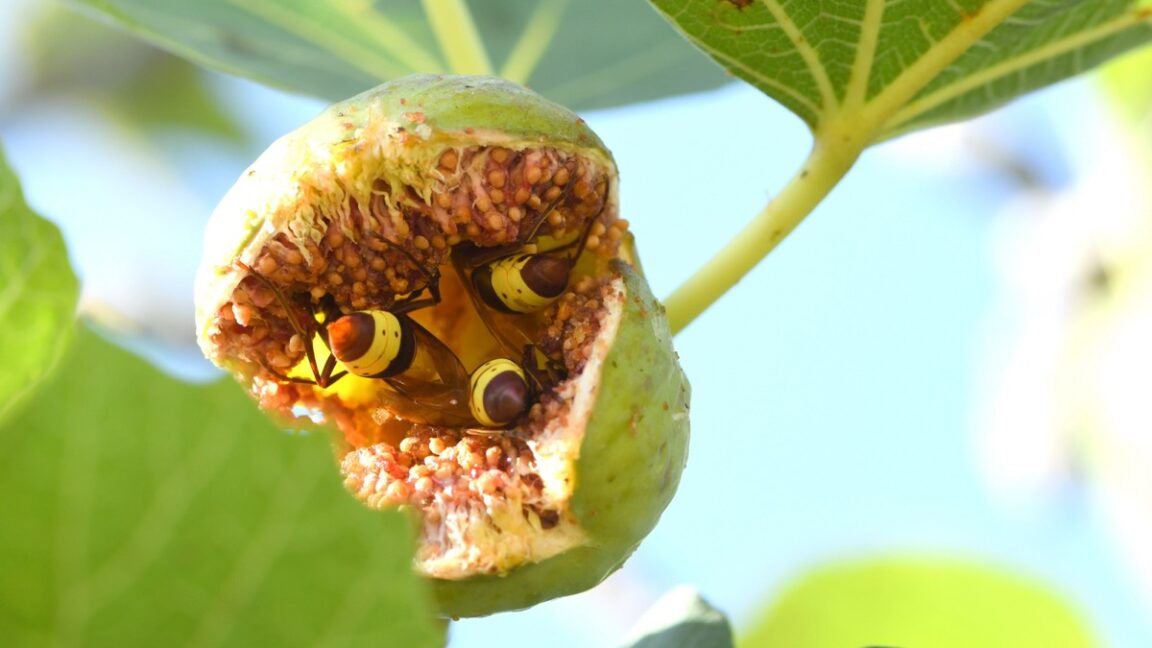Many animals, including humans, have developed a taste for alcohol in some form, but excessive consumption often leads to adverse health effects. One exception is the Oriental hornet. According to a new paper published in the Proceedings of the National Academy of Sciences, these hornets can guzzle seemingly unlimited amounts of ethanol regularly and at very high concentrations with no ill effects—not even intoxication. They pretty much drank honeybees used in the same experiments under the table.
“To the best of our knowledge, Oriental hornets are the only animal in nature adapted to consuming alcohol as a metabolic fuel," said co-author Eran Levin of Tel Aviv University. "They show no signs of intoxication or illness, even after chronically consuming huge amounts of alcohol, and they eliminate it from their bodies very quickly."
Per Levin et al., there's a "drunken monkey" theory that predicts that certain animals well-adapted to low concentrations of ethanol in their diets nonetheless have adverse reactions at higher concentrations. Studies have shown that tree shrews, for example, can handle concentrations of up to 3.8 percent, but in laboratory conditions, when they consumed ethanol in concentrations of 10 percent or higher, they were prone to liver damage.
Similarly, fruit flies are fine with concentrations up to 4 percent but have increased mortality rates above that range. They're certainly capable of drinking more: fruit flies can imbibe half their body volume in 15 percent (30 proof) alcohol each day. Not even spiking the ethanol with bitter quinine slows them down. Granted, they have ultra-fast metabolisms—the better to burn off the booze—but they can still become falling-down drunk. And fruit flies vary in their tolerance for alcohol depending on their genetic makeup—that is, how quickly their bodies adapt to the ethanol, requiring them to inhale more and more of it to achieve the same physical effects, much like humans.
Drinking games
Social wasps like the Oriental hornet also naturally consume ethanol from fruits, often transferring the brewers' yeast Saccharomyces cerevisae in the process, as well as other ethanol-producing microorganisms such as fungi and bacteria. The anti-microbial properties of ethanol might, in turn, proffer an advantage since the hornets often collect carrion to feed their larvae. Levin and his co-authors designed experiments to explore how the wasps metabolize ethanol and any effects high consumption had on their survival, longevity, and behavior, particularly when compared to honeybees.
They collected colonies of Oriental hornets and honeybees from areas near Tel Aviv University and fed them solutions with varying ethanol concentrations ranging from 0 to 80 percent. The ethanol used in the metabolic experiment was spiked with a heavy carbon isotope that breaks down into carbon dioxide as the ethanol is metabolized. The team measured the amount of labeled CO2 emitted by the wasps to determine how quickly their little bodies broke down the alcohol. The hornets metabolized ethanol at a significantly faster and higher rate than the honey bees used in the experiment.
This might explain why, unlike fruit flies, the Oriental hornet doesn't get drunk. Higher ethanol consumption did not alter behaviors like increased aggression or their ability to build nests. Nor was there any difference between the lifespans of hornets that consumed sugar water and those that consumed only alcohol. The same was not true of the honeybees used in the experiments, which didn't last 24 hours after ingesting high concentrations of ethanol. The ethanol also adversely affected the bees' locomotion and cognitive abilities, as well as aggressive and foraging behaviors.
The team analyzed the Oriental hornet's genome and found the insects have several copies of a gene involved with producing the enzyme that breaks down alcohol. The authors suggest that the hornets' long-standing mutually beneficial relationship with yeasts led to an evolutionary advantage in tolerating alcohol. That makes Oriental hornets a potentially valuable new model for studying the underlying mechanisms and potential new treatments for alcoholism.
PNAS, 2024. DOI: 10.1073/pnas.2410874121 (About DOIs).


